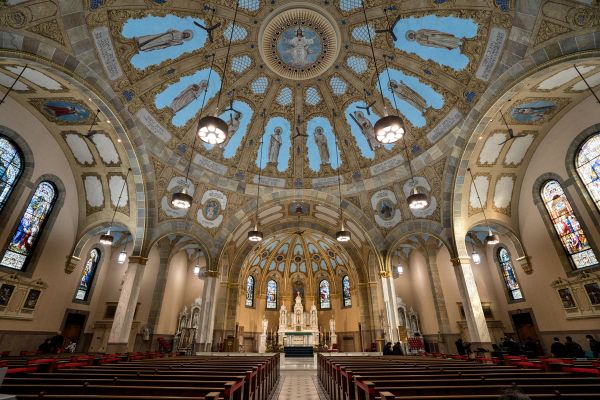In today’s dynamic financial landscape, churches and religious organizations face unique challenges when it comes to managing their finances, expanding their facilities, and fulfilling their missions. Church loans and investments play a crucial role in helping these institutions achieve their goals and serve their communities effectively. This comprehensive guide will explore the intricacies of church loans and investments, providing valuable insights for religious leaders, financial managers, and congregation members alike.
Understanding Church Loans
Church loans are specialized financial products designed to meet the unique needs of religious organizations. These loans can be used for various purposes, including:
- Construction of new buildings
- Renovation of existing facilities
- Refinancing existing debt
- Purchasing land or property
- Funding mission projects or outreach programs
Types of Church Loans
There are several types of church loans available, each tailored to specific needs:
- Mortgage Loans: These are long-term loans secured by church property, typically used for purchasing or constructing buildings.
- Construction Loans: Short-term loans used to finance the construction of new facilities or major renovations.
- Line of Credit: A flexible loan option that allows churches to borrow funds as needed, up to a predetermined limit.
- Bridge Loans: Short-term loans used to “bridge” the gap between immediate financial needs and long-term financing solutions.
- Equipment Loans: Designed to help churches finance the purchase of equipment such as sound systems, computers, or vehicles.
Qualifying for Church Loans
Lenders typically consider several factors when evaluating a church’s loan application:
- Financial Health: The church’s income, expenses, and overall financial stability.
- Membership and Attendance: The size and growth of the congregation.
- Leadership: The experience and stability of the church’s leadership team.
- Property Value: The value of any property used as collateral for the loan.
- Debt Service Coverage Ratio: The church’s ability to meet loan payments based on its income.
- Credit History: The church’s track record of managing debt and financial obligations.
Benefits of Church Loans
Church loans offer several advantages for religious organizations:
- Facility Expansion: Loans enable churches to expand their facilities to accommodate growing congregations.
- Mission Fulfillment: Financing can support outreach programs and community services.
- Improved Cash Flow: Refinancing existing debt can lead to better terms and improved cash flow.
- Tax Benefits: Interest paid on church loans may be tax-deductible, depending on local regulations.
- Customized Solutions: Lenders often offer flexible terms tailored to the unique needs of religious organizations.
Church Investments: Stewardship and Growth
While loans provide immediate financial resources, prudent investments can help churches ensure long-term financial stability and growth. Church investments require careful consideration of ethical, legal, and financial factors.
Types of Church Investments
Churches can consider various investment options, including:
- Fixed Income Securities: Bonds and other debt instruments that provide regular interest payments.
- Mutual Funds: Professionally managed investment portfolios that can offer diversification and potential growth.
- Real Estate: Property investments that can generate rental income and appreciate over time.
- Endowments: Funds set aside for long-term growth and income generation.
- Socially Responsible Investments (SRI): Investments aligned with the church’s values and mission.
Investment Considerations for Churches
When developing an investment strategy, churches should consider:
- Risk Tolerance: Balancing the need for growth with the importance of preserving capital.
- Liquidity Needs: Ensuring funds are accessible when needed for operations or projects.
- Time Horizon: Aligning investments with short-term and long-term financial goals.
- Ethical Considerations: Investing in accordance with the church’s values and beliefs.
- Diversification: Spreading investments across different asset classes to manage risk.
- Legal and Regulatory Compliance: Adhering to applicable laws and regulations governing church investments.
Benefits of Church Investments
A well-planned investment strategy can offer churches several benefits:
- Long-term Financial Stability: Generating returns to support ongoing operations and ministries.
- Income Diversification: Reducing reliance on donations by creating additional income streams.
- Capital Appreciation: Growing the church’s assets over time to fund future projects and expansion.
- Inflation Protection: Maintaining the purchasing power of the church’s funds over time.
- Mission Support: Generating resources to fund outreach programs and community initiatives.
Balancing Loans and Investments
Effective financial management for churches often involves a careful balance between loans and investments. While loans can provide necessary capital for growth and development, investments help ensure long-term financial stability and sustainability.
Strategies for Balancing Loans and Investments
- Debt Management: Use loans strategically for essential projects while maintaining a manageable debt load.
- Reserve Funds: Establish and maintain reserve funds through investments to cover unexpected expenses or revenue shortfalls.
- Cash Flow Planning: Align loan payments and investment income with the church’s cash flow needs.
- Asset Allocation: Develop an investment portfolio that balances growth potential with the need for stability and income.
- Regular Review: Continuously assess the church’s financial position, adjusting loan and investment strategies as needed.
Best Practices for Church Financial Management
To effectively manage loans and investments, churches should adopt these best practices:
- Establish a Finance Committee: Form a dedicated team to oversee financial decisions and strategy.
- Develop a Long-term Financial Plan: Create a comprehensive plan that addresses both immediate needs and future goals.
- Implement Internal Controls: Establish checks and balances to ensure proper handling of funds and prevent fraud.
- Maintain Transparency: Regularly communicate financial information to the congregation to build trust and accountability.
- Seek Professional Advice: Consult with financial advisors, accountants, and legal experts specializing in church finances.
- Educate Leadership: Provide ongoing financial education for church leaders to make informed decisions.
- Use Technology: Implement financial management software to streamline processes and improve reporting.
The Future of Church Loans and Investments
As the financial landscape evolves, churches can expect to see new trends and opportunities in loans and investments:
- Digital Lending Platforms: Online platforms may make it easier for churches to access loans and compare offers.
- Impact Investing: More churches may seek investments that align with their mission and create positive social impact.
- Alternative Financing: Crowdfunding and peer-to-peer lending could become viable options for church projects.
- Sustainable Investments: Growing emphasis on environmental, social, and governance (ESG) factors in investment decisions.
- Data-driven Decision Making: Increased use of analytics to inform loan and investment strategies.
Conclusion
Church loans and investments are powerful tools that can help religious organizations fulfill their missions, grow their impact, and ensure long-term financial stability. By understanding the various options available, carefully assessing their financial needs, and implementing sound financial management practices, churches can make informed decisions that support their spiritual and community goals.
Whether considering a loan for a new building project or developing an investment strategy for long-term growth, it’s essential for church leaders to approach these financial decisions with diligence, wisdom, and a clear vision for the future. By striking the right balance between loans and investments, churches can build a strong financial foundation that supports their work for years to come.
Frequently Asked Questions (FAQs)
- Q: What types of loans are available for churches? A: Churches can access various loan types, including mortgage loans, construction loans, lines of credit, bridge loans, and equipment loans. Each type is designed to meet specific financial needs.
- Q: How do lenders determine if a church qualifies for a loan? A: Lenders typically consider factors such as the church’s financial health, membership and attendance, leadership stability, property value, debt service coverage ratio, and credit history.
- Q: Are church loans tax-deductible? A: The interest paid on church loans may be tax-deductible, depending on local regulations. It’s best to consult with a tax professional for specific advice.
- Q: What investment options are suitable for churches? A: Churches can consider various investment options, including fixed income securities, mutual funds, real estate, endowments, and socially responsible investments (SRI).
- Q: How can churches ensure their investments align with their values? A: Churches can focus on socially responsible investments (SRI) and conduct thorough research on potential investments to ensure they align with the church’s mission and ethical standards.
- Q: What is the ideal balance between loans and investments for a church? A: The ideal balance varies depending on the church’s specific situation, financial goals, and risk tolerance. It’s best to consult with financial advisors to determine the appropriate strategy.
- Q: How often should a church review its loan and investment strategies? A: Churches should conduct regular reviews of their financial strategies, ideally at least annually or whenever significant changes occur in the church’s financial situation or goals.
- Q: Are there special considerations for small churches seeking loans? A: Small churches may face additional scrutiny regarding their financial stability and growth potential. They may need to demonstrate strong community support and a solid plan for repayment.
- Q: Can churches use investments as collateral for loans? A: In some cases, churches may be able to use investment assets as collateral for loans. However, this approach carries risks and should be carefully considered with professional advice.
- Q: How can churches protect themselves from financial mismanagement or fraud? A: Churches can implement strong internal controls, maintain transparency in financial reporting, conduct regular audits, and provide financial education to leadership to mitigate the risk of mismanagement or fraud.






